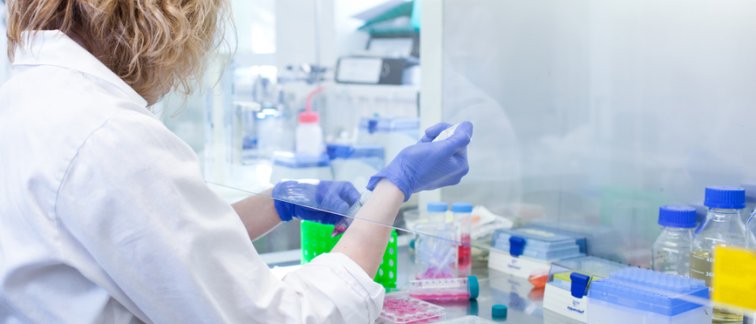Amsterdam Neuroscience has all the scientific knowledge, infrastructure and state-of-the-art facilities to perform preclinical and clinical studies, often working toward end-to-end research solutions and always in a multidisciplinary setting.
- Bioassays: the combined in-depth knowledge of, among others, proteomics, pathology and clinical expertise can lead to new insights of pathological pathways and related biomarkers.
- Biobanks: Amsterdam Neuroscience has access to several in-house biobanks holding a variety of samples of the human brain, including the Twin register database, NESDO/NESDA and the Netherlands Brain Bank.
- Brain Imaging: advanced Imaging techniques are a vital component for characterization of brain functions and brain morphology.
- Omics: through the combination of cellomics, genomics and proteomics, connections can be provided between the human genome and related phenotypes.
- Clinical Expertise: Amsterdam Neuroscience is integrating existing trial groups from different therapeutic areas within the Neuroscience departments into a newly-formed structure: The Amsterdam Neuroscience Clinical Research Unit (Amsterdam Neuroscience - CRU). This unit provides support and know-how for investigator initiated clinical trials and serves as a central point of contact for the various capacity groups within Amsterdam Neuroscience, but provides the infrastructure and set-up for the acquisition and execution of industry sponsored clinical trials too. Our emphasis on rigorous, academically informed experimental medicine capitalizes on our extensive clinical and academic facilities, thus allowing us to undertake a broad range of research from first-in-man studies to large national and international multicenter clinical trials and cohort studies.
- Patient Cohorts: Amsterdam Neuroscience has access to large and extensive patient cohorts of VUmc and AMC.
- Neuropathology: Amsterdam Neuroscience includes a Neuropathology section with unique expertise in the field of pathology.
- Bioinformatics, Biostatistics & Artificial Intelligence: during various research activities substantial amounts of data are generated. The High Performance Computing expertise, the biostatistics and AI needed to process these data are to a large extent embedded in the different departments, but will also be linked in a central socalled Amsterdam Biocomputation Center (ABC) of Amsterdam UMC.
- Mutant Mouse Models: a large number of in-house developed mutant mouse models, for example transgenic mouse models, are available at the institute in combination with the scientific expertise and related facilities.
- Mouse Phenomics: high-throughput behavior assays in mice are offered thereby strongly benefiting from the automated monitoring systems set up by the NeuroBasic PharmaPhenomics consortium using on-line video tracking 24/7. It is commercialized via the spinoff company Sylics.
- Photonics: an advanced technology using optical imaging systems, including an in vitro imaging platform and an in vivo animal model.
- Induced Pluripotent Stem Cell Center: Amsterdam Neuroscience has recently set up a modern stem cell facility, the iPS Center, in combination with research expertise that can be used for investigations on stem cell development and therapies in for example mutant mouse models and, eventually, in man.
- Complex Trait Genetics Lab: Research explores the genetic and environmental causes of individual differences in behavior, cognition and mental and physical health. Knowledge from different fields (biology, genetics, neuroimaging, bioinformatics) is integrated and statistical tools are being developed to analyze and understand genomic data for complex traits.

